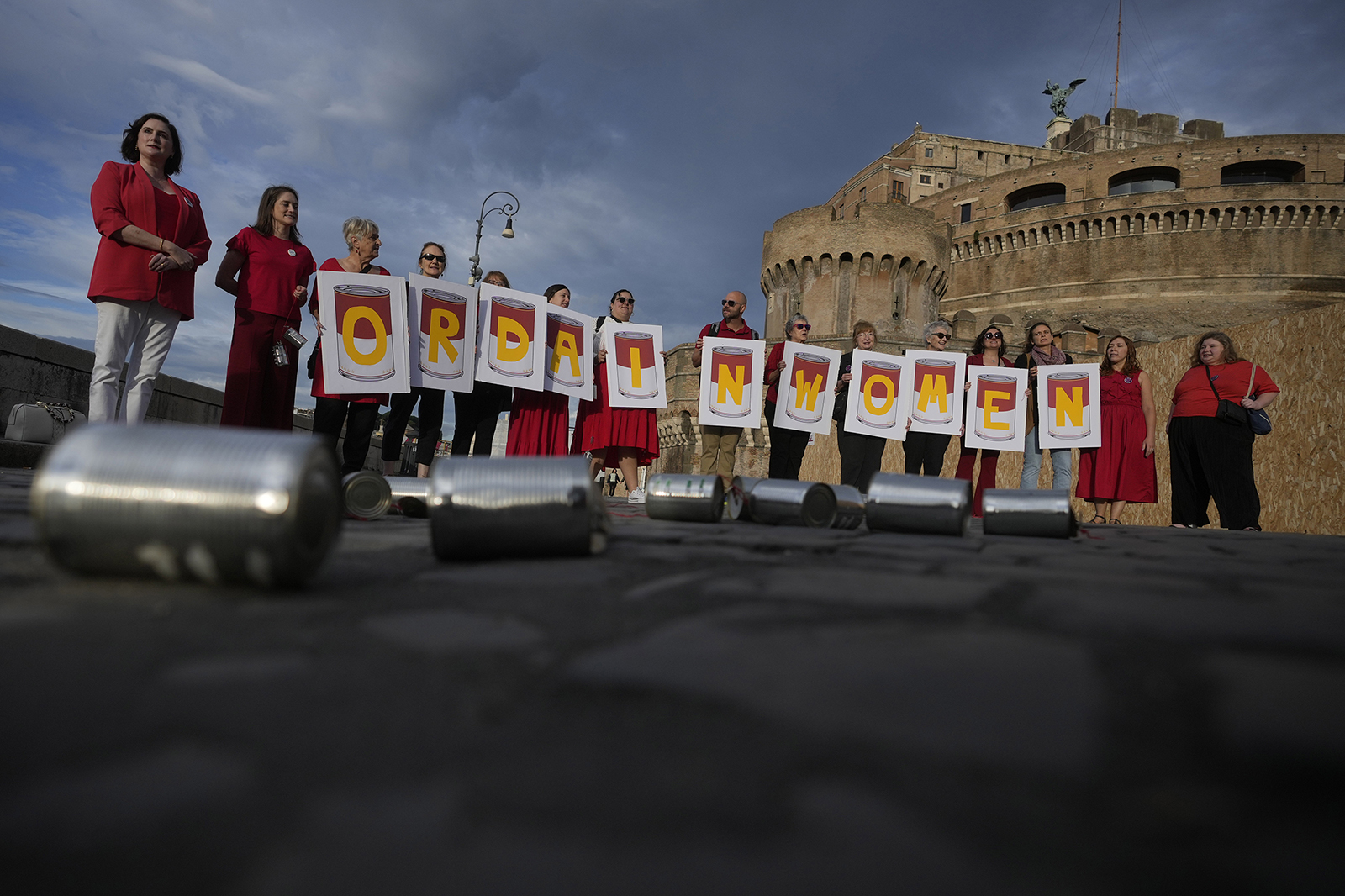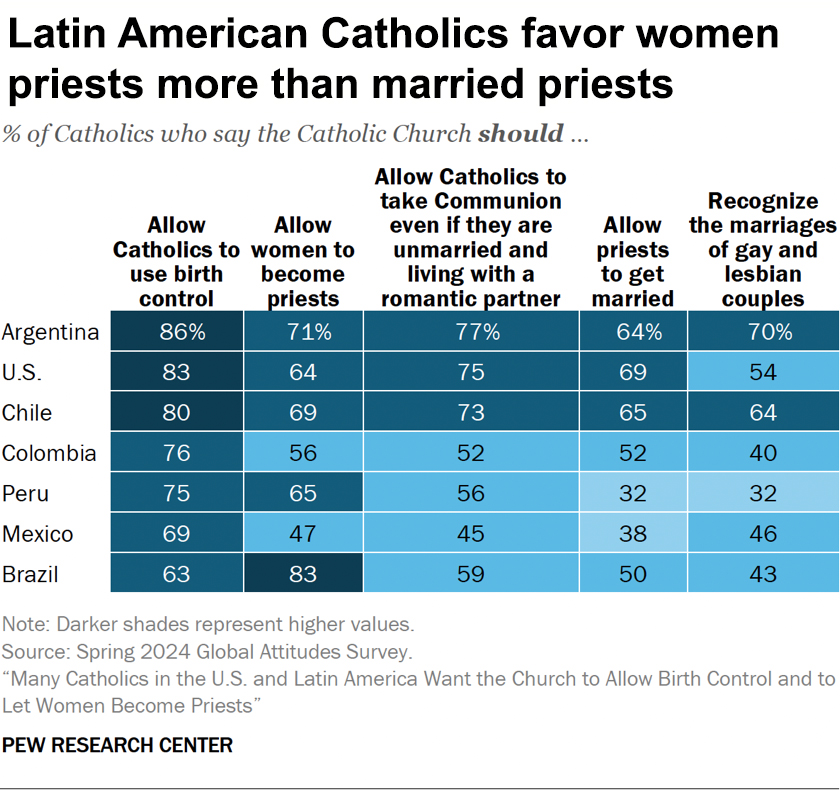
(RNS) — After more than five decades of looking at survey research, I am rarely surprised by the results when I look at a new poll. The recent Pew Research Center survey of Latin American Catholics, however, was a great surprise in that it showed there is more support in Latin America for women priests than for married priests.
I had always presumed support for married priests was greater than support for women priests the world over — as is true in the United States — and thus married priests would happen before women priests. But is it possible that celibate women priests come before married priests?
The position of the church hierarchy on these topics is very clear. It is opposed to both.
However, the hierarchy argues women cannot be priests for dogmatic reasons, while priests cannot get married because of church law. Thus, the pope and bishops would argue, the teaching against women’s ordination cannot change, while priests could be married if church law changed.
Neither topic, it appears, will be discussed at the Synod on Synodality currently taking place in Rome — despite strong laity support for both, especially in some regions.
The support for ordaining women is very high in the United States and in the six Latin American countries Pew surveyed. It is highest in Brazil, with 83% supporting the ordination of women. Every country surveyed has more than half of Catholics supporting the ordination of women except Mexico (47%), which just elected its first woman president.
In some Latin American countries, support for ordaining women is even higher than it is in the United States (64%). Besides Brazil, countries where support for women’s ordination outpolls support in the United States include Argentina (71%), Chile (69%) and Peru (65%).

“Latin American Catholics favor women priests more than married priests” (Graphic courtesy Pew Research Center. Headline by RNS)
Support for allowing priests to get married is, surprisingly, not as high (though still significant). Only in the United States is support for allowing priests to marry (69%) greater than the support for ordaining women (64%).
In every Latin American country surveyed by Pew, support for women’s ordination is greater than support for allowing priests to marry: Argentina (71% versus 64%), Chile (69% versus 65%), Colombia (56% versus 52%), Peru (65% versus 32%), Mexico (47% versus 38%), Brazil (83% versus 50%).
In Argentina and Mexico, even the support for same-sex marriage is greater than the support for allowing priests to marry.
I do not know enough about Latin America to explain these surprising numbers. Perhaps Latin Americans are not as patriarchal as we thought. It could also be the result of centuries of clericalism, where the clergy are put on a pedestal as holy men who are above everyone else.
But we should not forget: Even though the support for women priests is higher, the support for married priests is substantial. Only in Mexico and Peru is the support less than 50%.
One thing is clear: It has nothing to do with fidelity to church teaching since, according to Pew, Latin Americans have no problem with birth control, women’s ordination or allowing unmarried couples to go to Communion.
In any case, in Latin America those supporting women priests have done a much better job convincing the laity than have those who favor optional celibacy.
